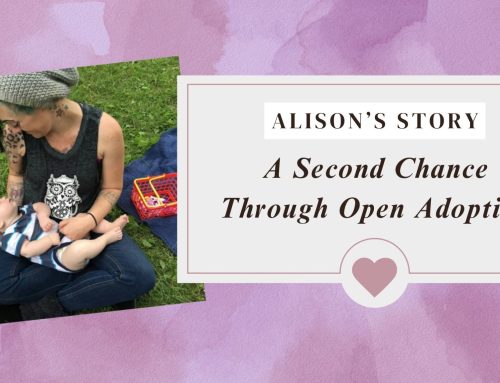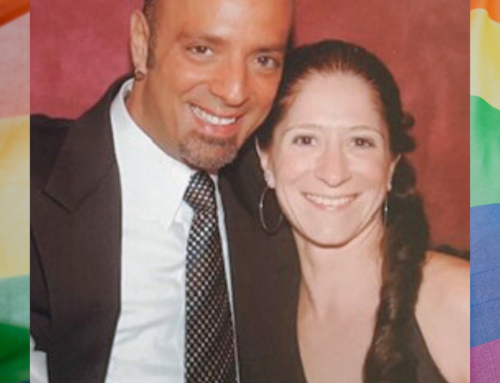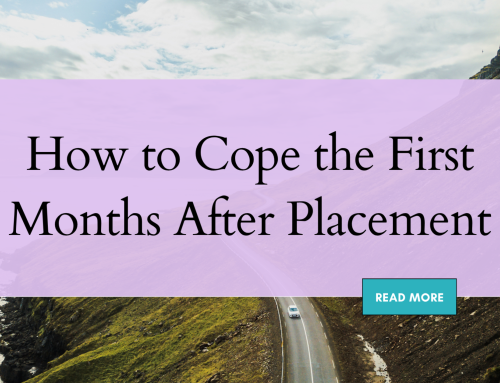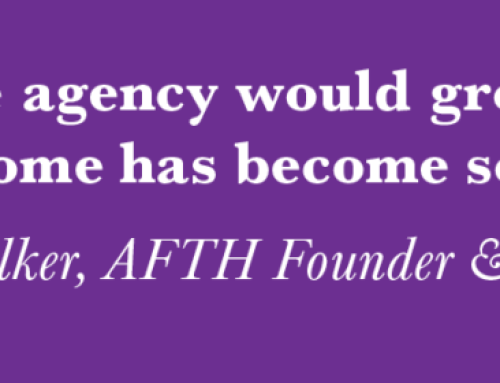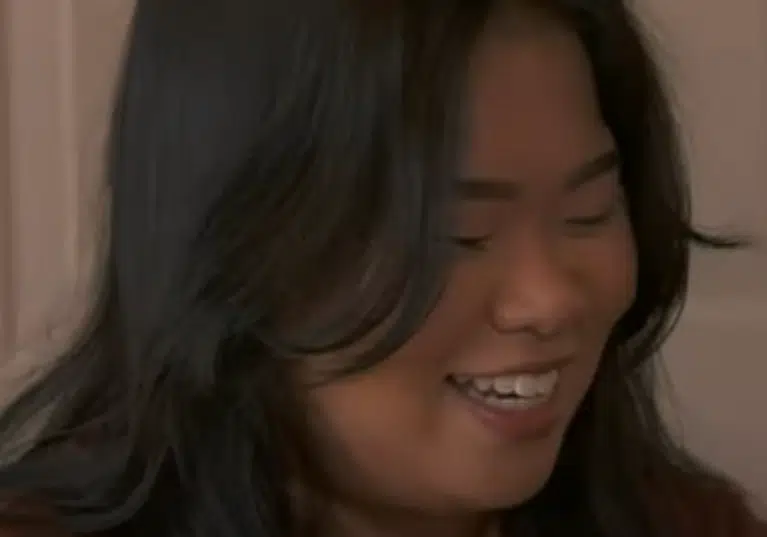 Adoptions From The Heart recently got to sit down with Amanda Phillips, a transracial adoptee who was adopted through AFTH in 2001 through international adoption. In this exclusive interview, Amanda talks about her adoption journey, struggles with identity, family and growing up, as well as her connection to the Netflix documentary ‘FOUND.’ Let’s dive in!
Adoptions From The Heart recently got to sit down with Amanda Phillips, a transracial adoptee who was adopted through AFTH in 2001 through international adoption. In this exclusive interview, Amanda talks about her adoption journey, struggles with identity, family and growing up, as well as her connection to the Netflix documentary ‘FOUND.’ Let’s dive in!
Interviewer: Tell us a little about yourself.
Amanda: “I was born in Yangjiang in the Guangdong province of China. I was adopted at 11 months old and grew up in Virginia with my adoptive parents and sister. My sister is six years younger than me.”
Interviewer: I understand that you were adopted from China. What was life like for you growing up in a transracial household? Was there ever a time in which you felt different?
Amanda: “To be honest, I don’t think I thought much about it growing up. There were not a lot of Asians where I grew up, but I never put too much thought into it until I was older. Even then, I ignored it and thought; that’s just how it is. Honestly, when I started searching for my adoptive parents, I became more aware and acknowledged that I actually am pretty different. Looking back on family pictures, I kind of stuck out. Or looking around a classroom and seeing how I was usually one of the only Asians there. It’s not something that bothered me too much growing up, but as I got older, I became
more aware.”
Interviewer: What challenges have you faced in your adoption journey?
Amanda: “The challenges are more so now. Growing up in a household that isn’t the same race or culture as you, you can lose your identity. I didn’t know anything about Chinese culture, and when people ask me, “Do you know Chinese” or ask me questions about it, it can be weird to explain to them that I know nothing about it. Or that I did not grow up in a Chinese family. Then you have to explain the whole thing, and it’s definitely messed with my head. I struggle(d) with “who am I.”
I am an American citizen because I was adopted here, but I’m Asian, and I’m from Asia. I don’t feel Asian, but I didn’t grow up in Asian culture. It’s something I’m still working on and trying to figure out.”
At the beginning of 2022, Amanda reached out to Adoptions From The Heart about a Netflix documentary ‘FOUND’ featuring three Asian adoptees on the search for their birth parents. Amanda, who was also on the search for her birth parents at the time, discussed with us how her search related directly to the film.
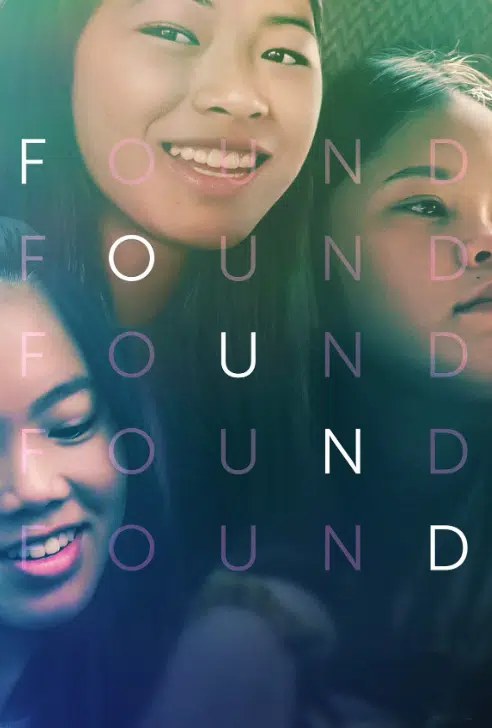
Amanda: “I started the DNA testing when I turned 18. My birthday is in October, so I started at the beginning of January 2019, a few months after I turned 18. I decided to take a DNA test because I had joined a lot of Facebook adoptee groups. Seeing their posts, many people were searching for their birth parents, and I honestly had no clue you could do that. At the time, I didn’t even know what DNA testing was. I was curious, so I decided to take the test, but honestly, I didn’t think much of it. It was one of those “I’m just going to do it” moments and I even kind of forgot I did it.
I got the results in February or March and uploaded them to other websites. I’m not exactly sure what DNA place shared my information because the people who contacted me about my birth parents were from an ancestry place in China. I’m guessing they had access to the data from the DNA places, and that’s how it was found. So, it wasn’t exactly 23andme. However, I used that data to upload it onto other ancestry websites.
November of 2019 is when I got an email saying they had found a match with my birth mom. I was very skeptical at first. I was in contact with a lady from the Found documentary who mentioned having contact with my birth mom. My birth mom and I were super skeptical, so we agreed we would do a second DNA test to confirm that it was real.
She contacted my birth father for a DNA test, but then Covid hit, so everything was pushed back for months. It wasn’t until June 2020 that it was confirmed it was a match.
In November, Amanda Lipitz, the director, got me on a call and said, “So we’ve been shooting a documentary for the past couple of months, and we are actually about to take a trip to China.” She mentioned the three girls searching for their birth parents and discovered my birth mom through that search. Really, without them, I don’t think my birth mom would have given up her DNA. There wasn’t a match for any other girls, but because my DNA was already in the system when they put my birth moms, it popped up, and they contacted me right away.
I was shocked when I found that out because it’s a documentary. It was weird for me, and I didn’t realize how big this film was. I just thought it was a little family documentary or something like that. I was shocked when she told me it would be on Netflix.”
Interviewer: What has support from family and friends been like since you began your journey in searching for your birth parents?
Amanda: When I told my mom I was doing the DNA test, she agreed in support. Growing up, my parents had always told me I was adopted because it’s hard not to look at us and tell. But, they all have been supportive.
I remember being younger and curious about why my birth parents gave me up. My parents would always say, “they loved you so much, but they couldn’t take care of you, so they had to place you.” I remember one day asking her why we couldn’t just fly to China and ask for my parents. She always said maybe I’d find them one day, but she’s also a realist. She was trying not to get my hopes up. She’d hoped I would, but the chances were really slim.
When I was 18, and it actually happened, my mom was pretty shocked. I think everyone was more so shocked in the beginning. It’s been a lot of emotions to go through, but talking with my mom and having her be supportive, has been amazing.
Every adoptee’s journey is unique to them and special in its own little way. Amanda’s journey is nothing short of that. And so, we wanted to know what advice she would have for other adoptees who may want to start the search but is a bit afraid.
Amanda: This journey has been crazy. The number one thing is to remember that it’s your journey, and don’t let anyone tell you what you should or should not be doing in it. Ultimately it’s your choice. I think sometimes we set expectations for ourselves or of what we believe the scenario is going to be. If it’s not exactly that, we kind of get upset. Just remember that it’s ok if it didn’t turn out the way you were envisioning. This is your story, and that’s ok, and that’s beautiful.
Also, try to be open with your family, friends, or whoever you feel safe with or around. When I went through this, I had a lot of emotions I was going through, and that I’m still going through. It’s been two years, and I’m just now opening up about my adoption journey. For the last two years, it’s been pretty lonely, not because no one was there for me but because I didn’t allow them to be. That’s really important when you go through something like this. Really lean on the people you are closest with because this is huge, and there are many up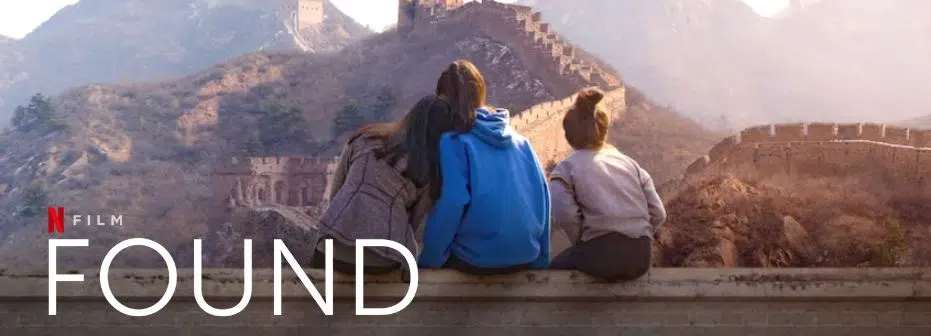 s and downs in this journey.
s and downs in this journey.
Interviewer: Do you think incorporating culture in all adoption plans is essential?
If you are an adoptive parent and are adopting from a different race or culture, it is in the child’s best interest to have members of their community and culture be a part of their lives. That’s something that I really struggled with going to my mom and talking to her about it. I was adopted in 2001, and no one was really talking about mental health, let alone the effects of adopting a child of a different race. No one spoke about the stipulations because they had never really been discussed.
I had to tell myself that just because I didn’t grow up in the Asian culture doesn’t make me less of an Asian. That is who I am, that is my race, and where I come from; I can’t deny that. As for parents, at least with me, as I got older, I got upset because failing to expose the child to their culture feels like you’re being denied parts of yourself. And, I know my parents didn’t mean it like that. Unintentionally, It’s hard to teach someone a culture you are not part of. That’s why I think it’s so important to have around those people who can. Adoptees will appreciate it more when they are older.
And too, it’s a known fact that some adoptees struggle with identity. Bring up complex discussions with your children. Being quiet about adoption and ignoring the massive elephant in the room for 18 years does no good.
Interviewer: How has your life changed since finding out about your birth mom? How has your relationship grown since finding out?
“The first time I talked to my birth mom was over a facetime call. I had been trying to message her, but my birth mom was very cautious, so she didn’t reach back out to me. She was ashamed she had to place and couldn’t take care of me. I think maybe, she was afraid that I was mad at her. So even when we talked, the translator would reiterate that I was not angry and wanted to talk to her and see who and how she was.
Once we got into the facetime call, she opened up a little. She first told me she apologized, and I said, please don’t. I understood that in China, at the time, it wasn’t in her control. I wanted her to know that I wanted to get to know her, not because I was angry.
These days, the language barrier and the time difference make everyday communication hard. I’m not sure how far of an education she has, but she also isn’t able to type well. We check in once or twice a month to see if everything is good and how each other is doing, but I’d want to visit there one day. I have contact with both birth parents but mainly my birth mom. She has told me she wishes we had a closer relationship, as do I. Hopefully, when the day comes, I’ll be able to meet her in person.”
Adoptions From The Heart would like to Thank Amanda Philips for taking the time to speak with us. To learn more about Amanda’s story, check out her interview on Good Morning America. To check out the documentary, head to Neflix.com, sign in, and search FOUND.

